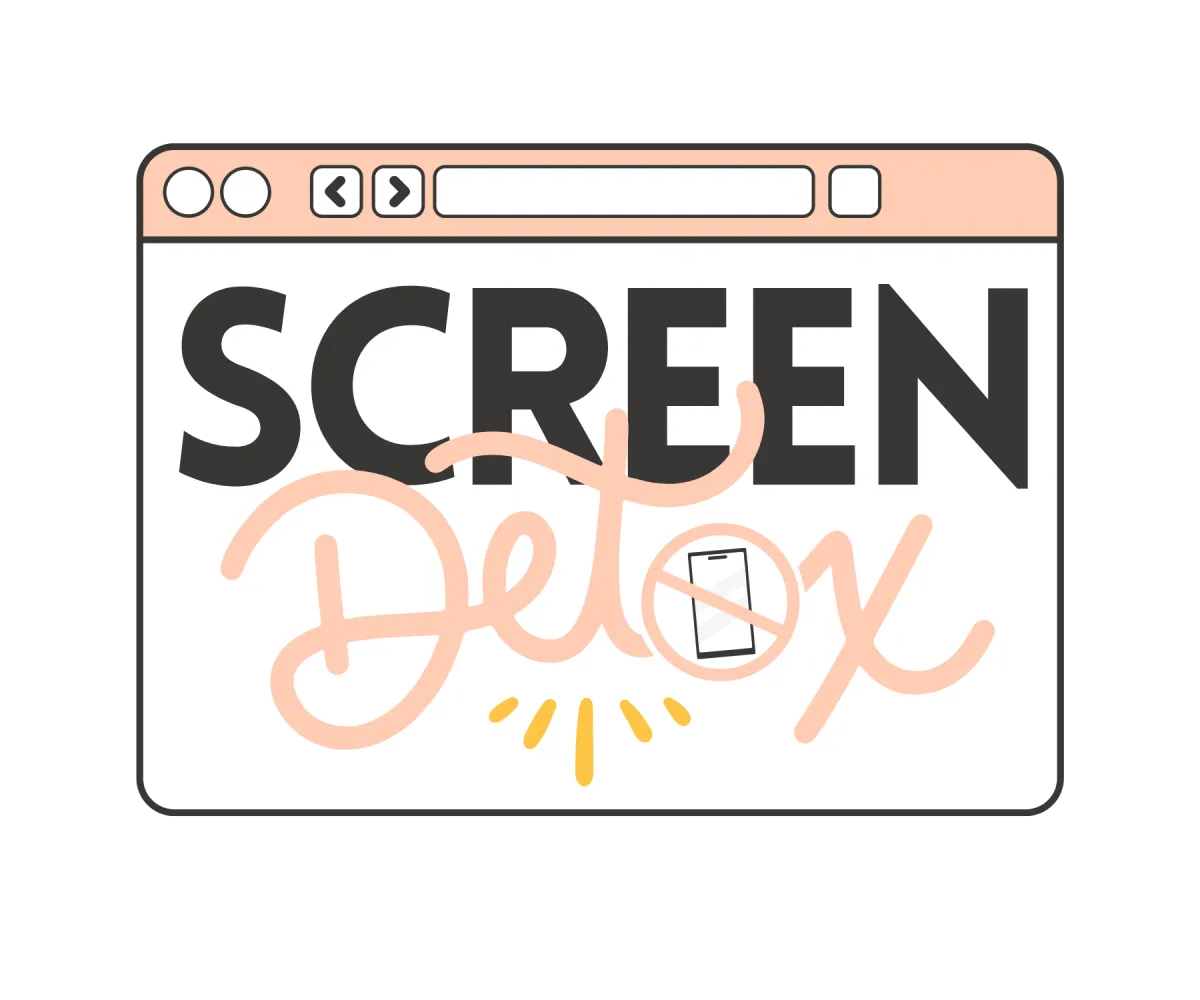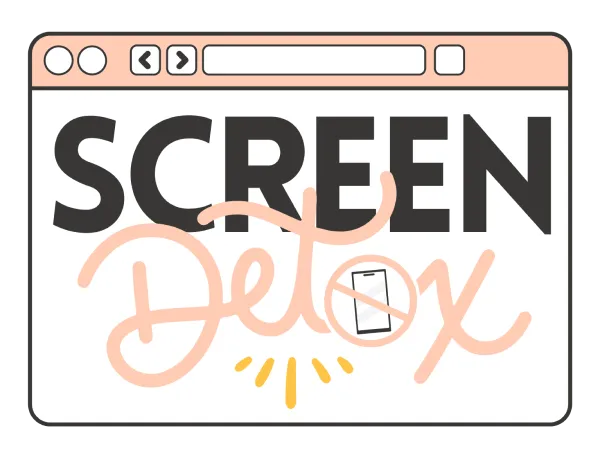
Stop letting screens “steal” your child’s potential.
Use This “Neuroscience Trick” & Your Child Naturally Swaps Screen Time for Reading, Outdoor Play & Learning in Just 14 Days
Best part is? No expensive therapy sessions or complicated interventions required!
Make Your Child Love the Outside World More Than the Digital World
The Only Science-Backed Solution That Naturally Helps Your Child Crave Real-World Interaction Instead of Screen Time
This isn't just another generic parenting guide.
This is a proven, neuroscientific-backed system that helps young children avoid the negative impacts of screen addiction and foster healthy habits that last a lifetime.
Start seeing a dramatic improvement in your child's behavior and screen habits within the first week.
Unlock your child's full potential and help them rediscover their passion for learning, creativity, and real-world exploration.
Foster deeper, more meaningful connections with your child and create lasting family memories.
Help them develop essential life skills that will serve your child well into adulthood.
MODULE 1
I’ll Help You Create a Screen Free Environment for Your Child
Together we’ll identify what’s driving your child towards wanting more and more screen time and show you how to address it right away.
I'll help you shape your child environment in a way that naturally is going to “kill” their crave to watch movies or play video games and trade it for outdoor activities and even play time with you.
You'll have all the tools you need to create a nurturing space that promotes healthy habits and helps your child build real life skills.


MODULE 2
Implement Fun & Engaging Family Activities That Your Kids Will Love
I’ll show you practical steps of how to slowly but surely make your child lose interest in screens without triggering tantrums or negative behavior.
Learn how to clearly set expectations, communicate your intentions, and create a family media plan that works for everyone.
Discover the importance of consistency, modeling healthy habits, and involving your child in the process.
MODULE 3
You’ll Discover the Science Behind Digital Addiction and Its Impact on Your Child
Learn about the role of dopamine in creating addictive patterns, the dangers of instant gratification, and how social media and gaming are designed to keep users hooked.
Explore real-life examples and gain the knowledge to recognize signs of addiction in your child.
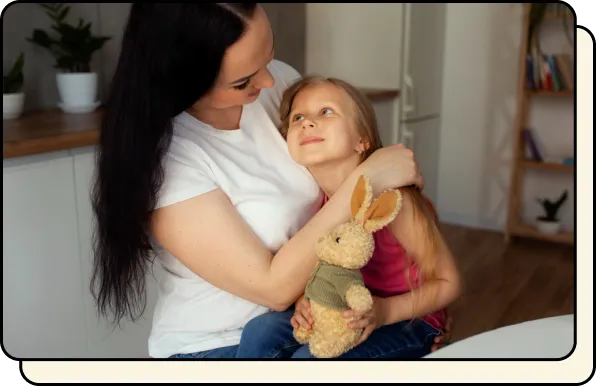
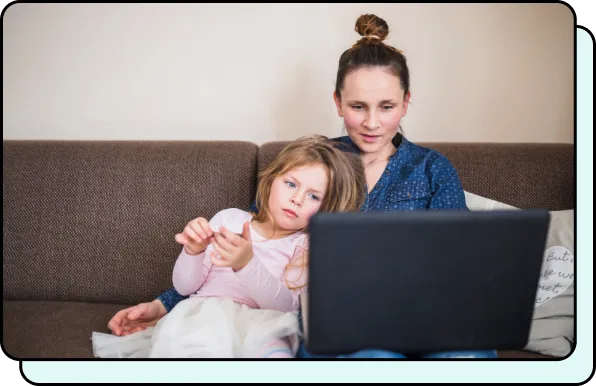
MODULE 4
I’ll Show You How To Navigate the Digital Cycle of Doom
Explore the treacherous digital cycle of doom and its impact on your child's prefrontal cortex development.
You’ll learn fascinating experiments that demonstrate the power of technology over our attention and decision-making abilities.
We'll discuss the role of positive and negative reinforcement in shaping your child's digital habits and provide you with proven strategies to break free from the cycle of doom.
MODULE 5
Learn the Art of Using Your Parental “Power” & “Influence” to Shape Your Child's Digital Habits
Focus on the crucial role that you, as a parent, play in shaping your child's relationship with technology.
Whether you work from home or at the office, your own digital habits and boundaries have a significant impact on your child's behavior.
We'll explore the power of parental influence, both positive and negative, and I'll share strategies for modeling healthy technology use in your own life.
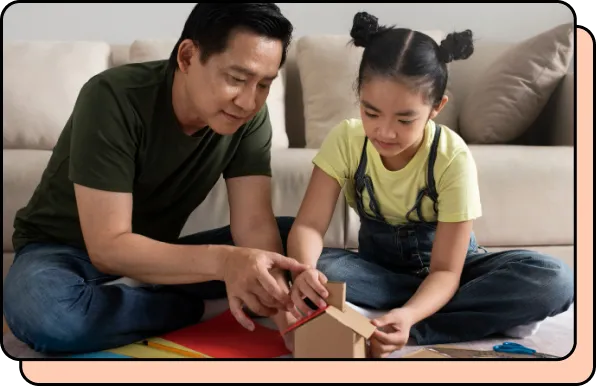

MODULE 6
You’ll Effectively Eliminate Screen Time in Your Household
Learn how to create a realistic and sustainable plan that takes into account your child's age, personality, and needs.
We'll cover strategies for enforcing limits, dealing with resistance, and finding alternative activities that promote healthy development.
By the end, you'll have a toolbox full of techniques for managing screen time and fostering a balanced lifestyle for your child.
MODULE 7
Understand the Effects of Screen Time on Your Child's Health and Development
Take a comprehensive look at the impact of screen time on your child's emotional, social, and physical health.
I'll share the latest research on the effects of excessive screen time on brain development, attention span, sleep patterns, and more.
And you’ll get concrete strategies for mitigating these negative effects and promoting a healthy development across all areas.
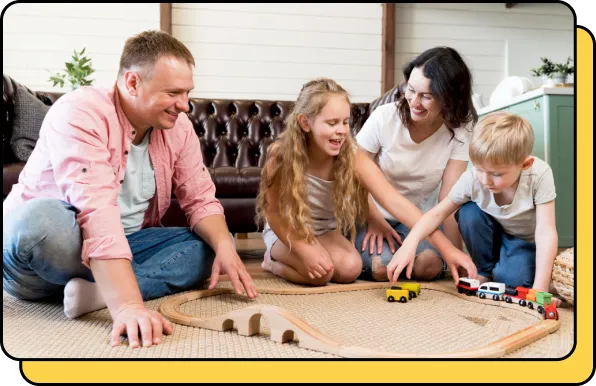
The Screen Detox Program is The Only Neuroscientific Solution for Kids to Eliminate Tech Distractions and Help Them Develop Normally
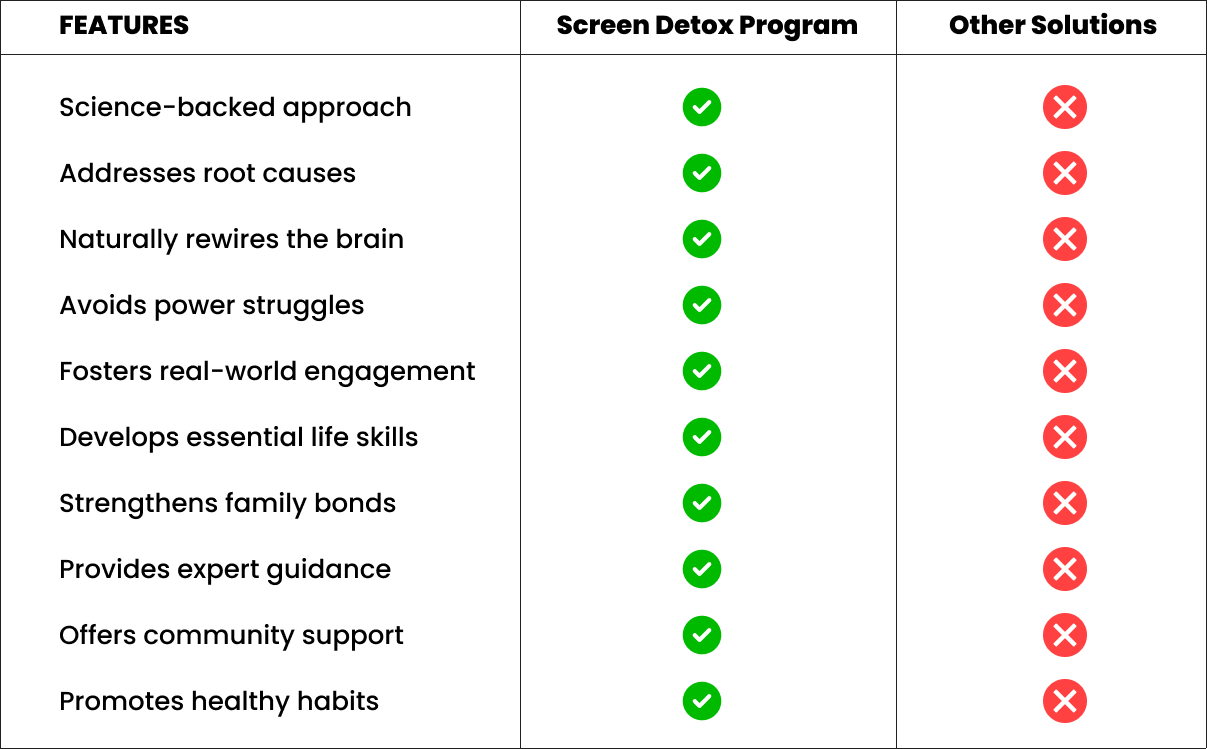
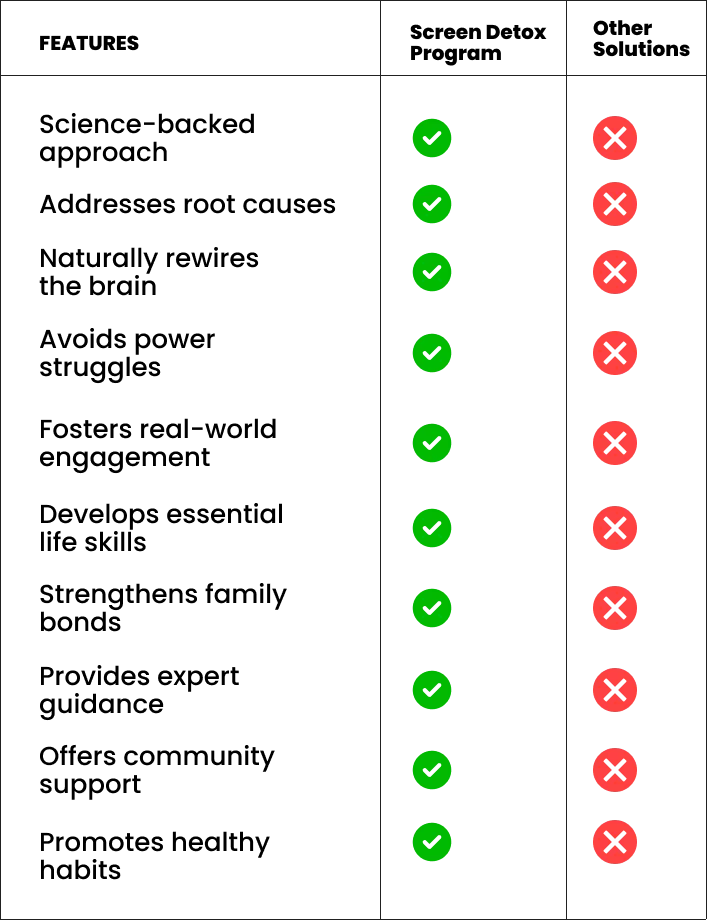
It’s a fact.
Endless Screen Time Negatively Impacts Child Development — Especially for Kids Under the Age of 6
You probably already seen the news or read the studies.
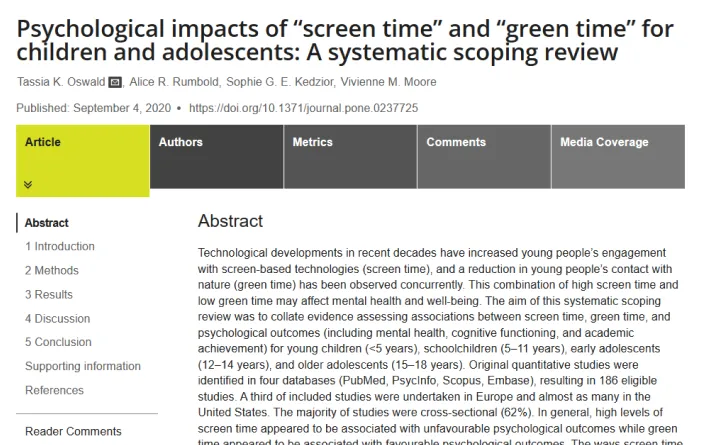
Journal of Pediatric Psychology Research:
Reveals a direct link between excessive screen time and its harmful effects on children’s cognitive and emotional growth, showing significant negative impacts on attention spans, academic achievements, social skills, and mental health.
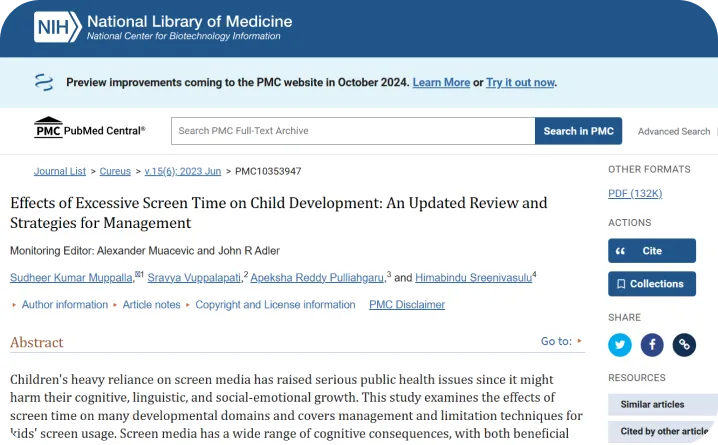
National Institute of Health Study:
Highlights the negative impact of excessive screen time on children, linking it to cognitive setbacks, poor academic and language skills, sleep issues, and mental health problems such as depression and anxiety. The findings emphasize the critical need for strategies to limit screen exposure and protect children's overall development.
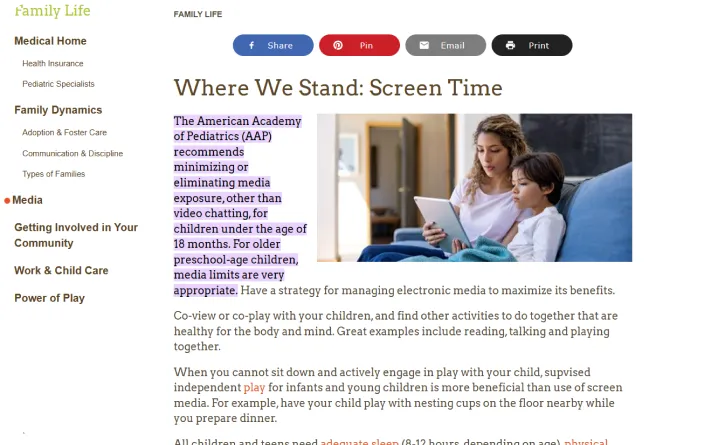
American Academy Pediatrics Statement:
(AAP) have stepped in with recommendations and calls for no screen time at all for children until 18 to 24 months, except for video chatting, and says kids ages 2 to 5 should get an hour or less of screen time per day.
Yes! Parenting is Way Harder Today than 20 Years Ago
And it’s all because of technology.
20 years ago, the only screen in your house was on the TV.
Now you got tablets, smartphones, computers, laptops, etc.
And all the games, movies and videos in the world that you child has access.
The problem is these devices were designed to be addictive.
Your child has access to any online game, YouTube videos and app that are engineered to keep your child hooked, constantly craving the next level, the next episode, the next reward, the next dopamine hit.
Exploiting the same psychological tricks used by casinos and slot machines — they like to call it “maximize time on device.”
So, if you feel powerless,
Know that it’s not your fault.
In fact, 71% of parents are concerned their child might spend too much time in front of screens.
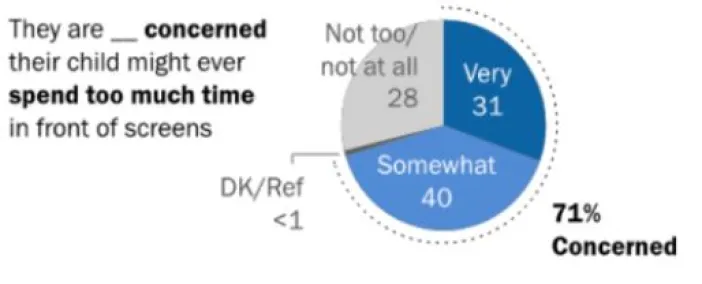
Source: Pew Research Center
And if you're one of those parents reading this,
Then you probably already tried to a bunch of ways to keep your child away from screens.
Be stricter.
Limit screen time.
And maybe you even tried the latest “cutting-edge” screen time control app.
But nothing worked.
Well, there’s a reason for this.
You see the problem is.
These days
Screens Are Unavoidable

Whether it's at school using tablets for interactive learning.
At home watching videos or playing games on smartphones.
Talking with a loved one on video calls.
Or even during a family dinner where everyone is glued to their devices.
There aren’t many moments in a day when children aren’t exposed to screens - even from a young age.
And as a worried parent,
You don’t want your little one to:
Zone out during family dinners, eyes glued to the iPad.
Throw tantrums when asked to put the phone away.
Lie about how much time they've spent gaming.
Skip soccer practice to binge-watch YouTube videos.
Struggle to make friends, preferring Roblox chat to real talk.
Forget to do basic chores, too busy leveling up in Minecraft.
Sneak the tablet into bed, staying up late on TikTok.
Refuse to play outside, claiming "there's nothing to do".
Get low grades, playing it off like it’s not a big deal.
Snap at siblings over whose turn it is on the Xbox.
Technology could be “stealing” your child’s limitless potential.
You Only Get ONE Chance at Giving Your Child the Skills, Tools and Development to Thrive at Life, And That Time is Now!
You can't afford to ignore this digital “epidemic” any longer.
Because the long-term consequences aren’t pretty:

Stunted social skills, struggling to connect in the real world.

Lackluster academic performance, jeopardizing future opportunities.

Chronic health issues like obesity, sleep disorders, and vision problems.

Increased risk of anxiety, depression, and other mental health challenges.

2018 Harvard University Research Revealed:
Excessive screen time affects the adult brain in ways that are remarkably similar to the impact of cocaine.
What’s even worse, this study also found that excessive screen time could lead to irreversible brain atrophy, adversely affecting a child's development, learning capabilities, and leading to behavioral issues such as hyperactivity, anxiety, and difficulties in communication.

2023 Study From National Institute of Health
Young children who engage in two or more hours per day, or three or more hours per day, are more likely to experience behavioral problems and have poorer vocabulary acquisition.

2023 Boston’s Children’s Answers Article:
Dr. Carol Wilkinson, a developmental behavioral pediatrician: “The infant brain thrives on enriching interactions with the environment, and excessive infant screen time can reduce opportunities for real-world interactions that are important for brain development,”
There’s no denying that screen time is consuming our children's lives and robbing them of their full potential.
And the current “solutions” are often ineffective, relying on strict limits, punishments, and power struggles that only strain the parent-child relationship.
But luckily
I did all the hard work of researching, experimenting & working with hundreds of children.
And After 15 Years I’ve Discovered a Natural & Scientific Way to Rewire Your Child's Brain into Choosing Real-Life Experiences Over Screen Time

As a child development specialist with over 15 years of experience,
I've dedicated the past decade to understanding and addressing the many challenges parents face in today's digital world,
And my relentless years of research have led me to discover a natural and science-backed method to rewire a child's brain and decrease their desire for screen time.
After working with hundreds of children and experimenting with different approaches,
I found
A Neurological “Trick” That Rewires Your Child’s Brain into Losing Interest in Phones, Tablets & Screens
I’m not talking about making more and stricter restrictions.
Giving more severe punishment,
Downloading some new anti “child” screen time app,
Or having a discussion with your child about their device use.
No.

The secret is to target the underlying neural pathways associated with habit formation and dopamine release.
By doing that,
We can gradually reduce a child's dependence on screens for entertainment and satisfaction. And you can do that by engaging with your child in activities that stimulate your child’s part of the brain responsible for impulse control interest in real-world activities.
You can literally neurologically “trick” your child into refusing to spend their time watching screens.
And the best part
This “trick” can be implemented today.
And in as little as 14 days
Your child could be fully engaged with you, craving for outdoor play, and enjoying face-to-face interactions.
Just like:

Raul who was your classic case of extreme screen exposure — he was impatient, disobedient, and tantrum-prone, with a refusal to engage in non-screen activities or schoolwork.
But after “tricking” his neurology.
Raul started to showcase significant improvements in behavior and a newfound willingness to participate in life beyond the screen.
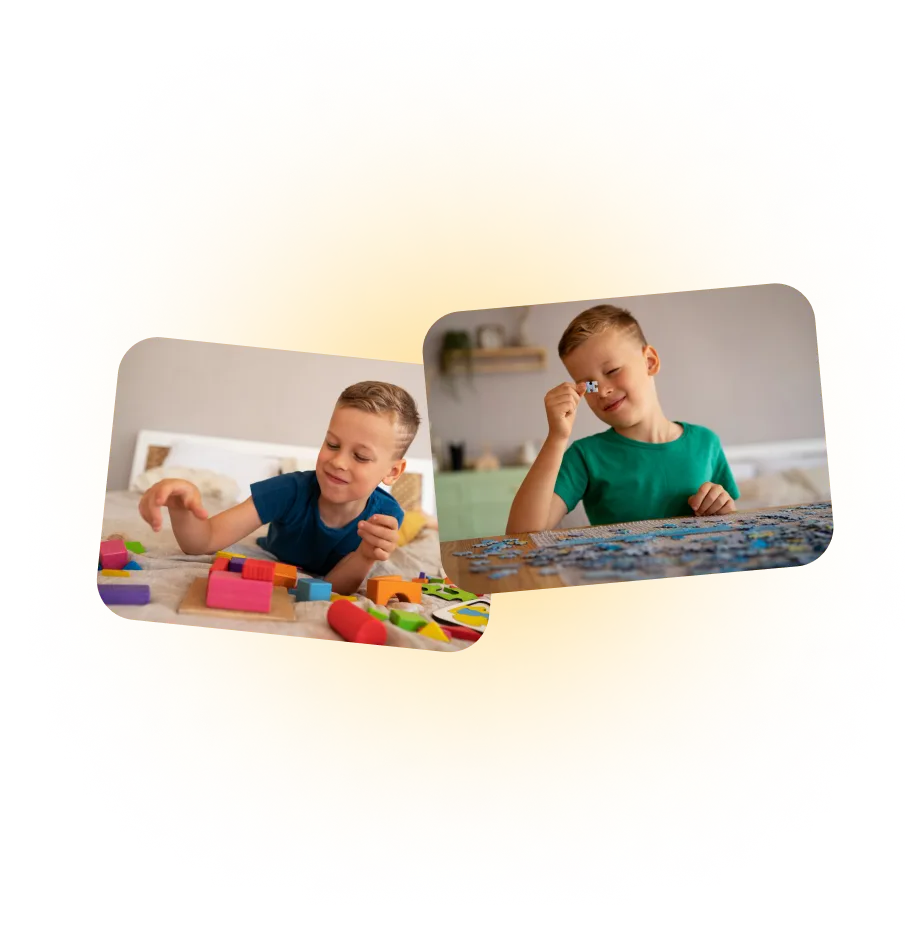
Before, Ryan was that kid who never wanted to part with his iPad.
But after completing this program, he experienced a remarkable transformation—his behavior improved dramatically, and he discovered a newfound enthusiasm for activities that didn't involve screens.
Now, he's thriving in a more balanced, screen-free lifestyle.
I truly believe that,
Every Child Has the Potential to Excel at Life &
Grow up to Achieve Amazing Things
When you are naturally and neurologically “influence” your child into engaging into more brain stimulating activities.
Your child will begin to slowly but surely rediscover their innate curiosity, creativity, and passion for learning, as their brain breaks free from the grip of screen addiction.
And soon enough.
You'll witness the incredible transformation of your child who now embraces real-world experiences, develops essential life skills, and thrives in all aspects of their life.

Nurture Your Child to Grasp Real-World Skills
Empower your child to develop crucial life skills such as creativity, problem-solving, and effective communication, setting them up for success in all aspects of life.

Rewire Your Child's
Brain Naturally
Watch your child blossom as they rediscover the joys of hands-on learning, face-to-face interactions, and the boundless possibilities of their imagination.

Empower Your Child for a Thriving Future
Give your child the greatest gift of all – the tools, skills, and mindset they need to grow into a fully functional human being.
Introducing
The Only Neuroscientific Program That Naturally Helps Your Child Happily Trade Screen Time for Outdoor Activities in Just 14 Days
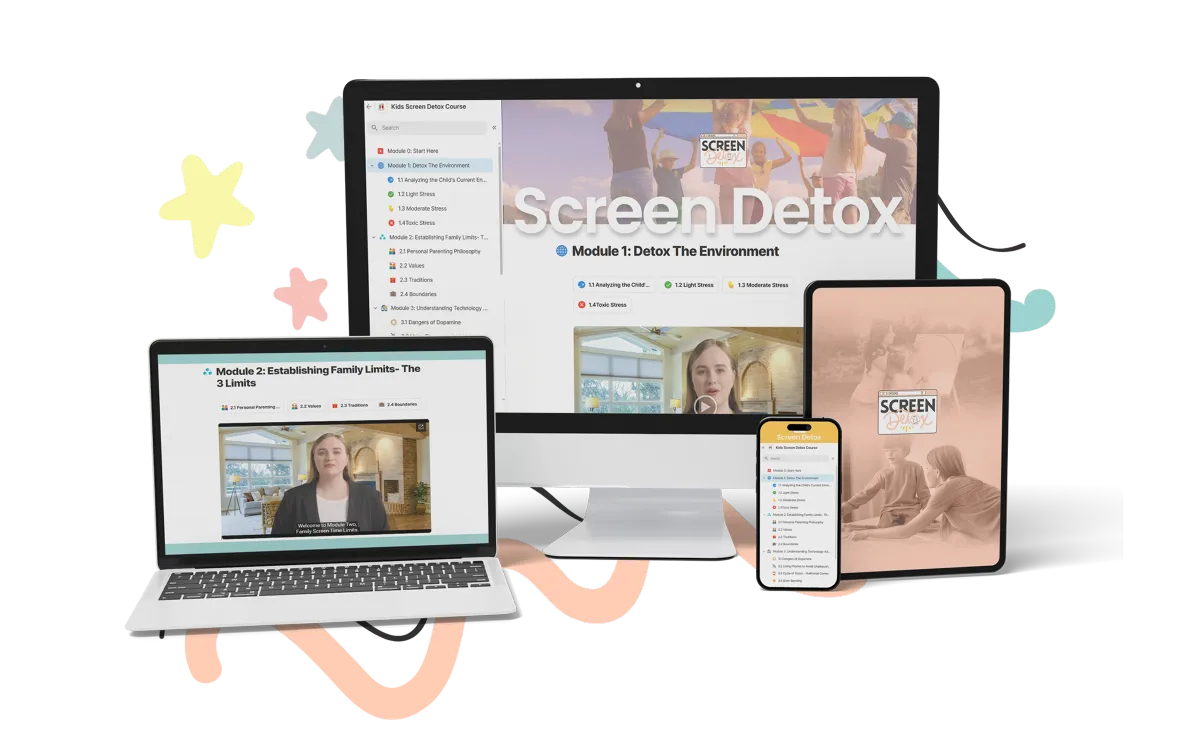
Have at your fingertips a science-back and expert level advice, guidance, videos tutorials and powerful exercises designed to support your child towards a more screen-free life.
Take Control of Your Child's Tech Habits & Give Them
the Gift of a Fun and Fulfilling Childhood
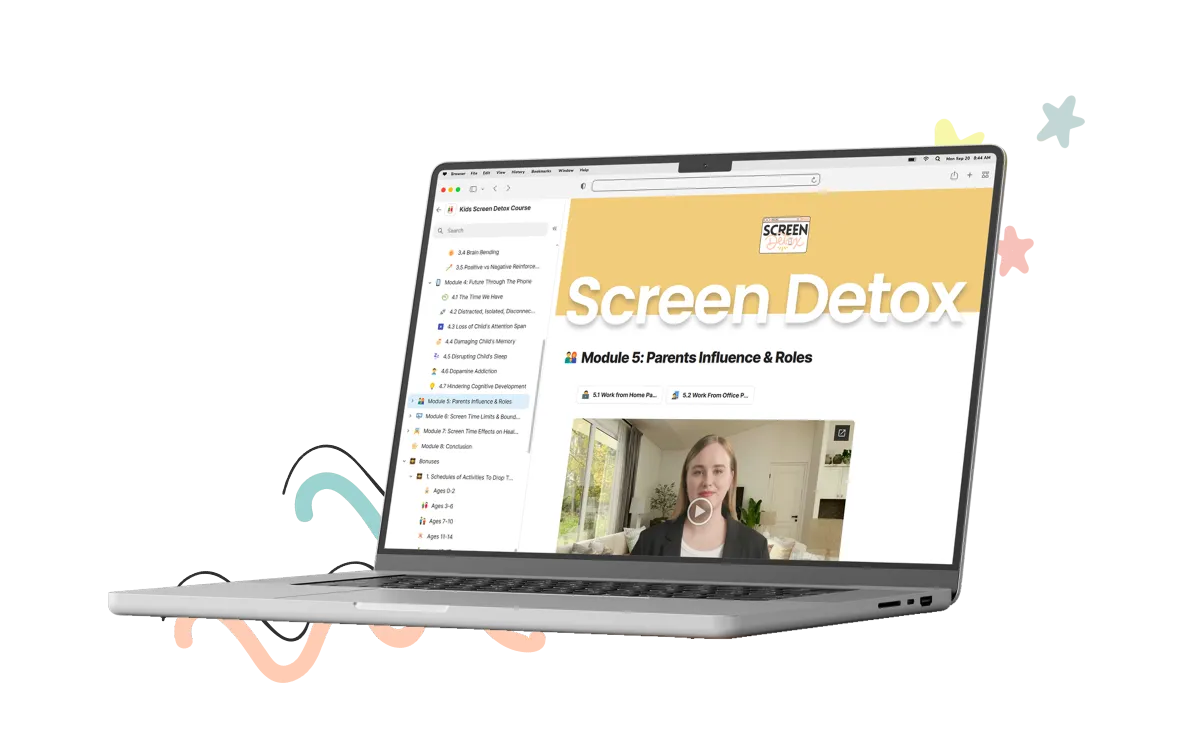

Video Lessons:
Unlock the secrets to rewiring your child's brain for a screen-balanced life through our engaging, expert-led video lessons. Gain the knowledge and strategies you need to break the cycle of digital dependency and empower your child to thrive in just minutes a day.

Private Community:
Connect with a supportive network of like-minded parents where you can ask questions, start discussions or celebrate your victories. Benefit from the collective wisdom, experiences, and encouragement of families on the same journey towards keeping young kids away from screens.

Tools, Templates & Exercises:
Transform knowledge into action with our comprehensive suite of practical tools, customizable templates, and interactive exercises. I designed these tools to help you implement the Screen Detox Program strategies with ease and confidence, so you can ensure lasting results for your child.
Here’s a Sneak Peek of What’s Inside:
Module 1: Understanding and Detoxing Your Child's Environment
In this foundational module, you'll learn how to analyze your child's current environment and identify potential stressors that may be contributing to their screen addiction. You'll gain a deeper understanding of the different levels of stress, from light to toxic, and how they impact your child's well-being. By the end of this module, you'll have the tools and knowledge to create a supportive and detoxed environment that promotes healthy habits and resilience.
What you'll learn:
How to assess your child's current digital and physical environment.
Strategies for addressing light, moderate, and toxic stress levels.
The role of screens in contributing to stress and how to mitigate their impact.
Techniques for fostering resilience and coping skills in your child.
Creating a roadmap for a balanced and nurturing home environment.
Identifying and eliminating environmental triggers for screen addiction.
Promoting positive offline activities and experiences for your child.
Empowering your child to make healthier choices in their digital life.
Module 2: Implementing Family Screen Time Limits
This module focuses on the practical aspects of establishing and enforcing screen time limits within your family. You'll learn how to set clear boundaries, communicate expectations, and create a family media plan that works for everyone. We'll discuss the importance of consistency, modeling healthy habits, and involving your child in the process. By the end of this module, you'll have a solid foundation for managing screen time in your household.
What you'll learn:
Setting realistic and age-appropriate screen time limits
Creating a family media plan that promotes balance and well-being.
Strategies for enforcing screen time boundaries consistently
Dealing with resistance and negotiating compromises with your child
Modeling healthy screen habits as a parent
Encouraging alternative activities and family bonding time
Using technology to your advantage (e.g., parental controls, monitoring apps)
Adapting your approach as your child grows and their needs change
Module 3: Understanding Technology Addiction
In this eye-opening module, we dive deep into the science behind technology addiction and its impact on your child's brain development. You'll learn about the role of dopamine in creating addictive patterns, the dangers of instant gratification, and how social media and gaming are designed to keep users hooked. We'll explore real-life examples and provide you with the knowledge to recognize signs of addiction in your child.
What you'll learn:
The neuroscience of addiction and how it applies to technology use.
The role of dopamine in creating addictive patterns and behaviors.
How social media, gaming, and other digital platforms are engineered to be addictive.
Recognizing signs of technology addiction in your child.
The long-term effects of technology addiction on brain development and well-being.
Strategies for breaking the cycle of addiction and promoting healthy habits.
Helping your child develop self-awareness and self-regulation skills.
Fostering open communication and trust around technology use.
Module 4: Navigating the Digital Cycle of Doom
In Module 4, we explore the insidious nature of the digital cycle of doom and its impact on your child's prefrontal cortex development. You'll learn about brain-bending experiments that demonstrate the power of technology over our attention and decision-making abilities. We'll discuss the role of positive and negative reinforcement in shaping your child's digital habits and provide you with strategies to break free from the cycle of doom.
What you'll learn:
Understanding the digital cycle of doom and its impact on the developing brain.
The role of the prefrontal cortex in decision-making, impulse control, and attention.
How technology exploits our psychological vulnerabilities.
Brain-bending experiments that demonstrate the power of digital distractions.
Positive and negative reinforcement in shaping digital habits.
Strategies for breaking free from the digital cycle of doom.
Helping your child develop critical thinking skills in the digital age.
Creating a family culture that values mindfulness and intention around technology use.
Module 5: The Power of Parental Influence
This module focuses on the crucial role that parents play in shaping their children's relationship with technology. Whether you work from home or in an office, your own digital habits and boundaries have a profound impact on your child's behavior. We'll explore the power of parental influence, both positive and negative, and provide you with strategies for modeling healthy technology use in your own life.
What you'll learn:
Understanding the impact of parental influence on children's digital habits.
Recognizing your own digital habits and their potential impact on your child.
Strategies for modeling healthy technology use and boundaries.
Creating a family culture that prioritizes offline experiences and relationships.
Balancing work and family life in the digital age.
Encouraging open communication and active listening with your child.
Empowering your child to make responsible choices around technology use.
Collaborating with other parents and caregivers to create a supportive community.
Module 6: Implementing Effective Screen Time Limits and Boundaries
In this practical module, we shift our focus to implementing effective screen time limits and boundaries in your household. You'll learn how to create a realistic and sustainable plan that takes into account your child's age, personality, and needs. We'll discuss strategies for enforcing limits, dealing with resistance, and finding alternative activities that promote healthy development. By the end of this module, you'll have a toolbox of techniques for managing screen time and fostering a balanced lifestyle.
What you'll learn:
Assessing your child's current screen time habits and identifying areas for improvement.
Setting realistic and age-appropriate screen time limits.
Implementing a family media plan that promotes balance and well-being.
Strategies for enforcing limits consistently and dealing with resistance.
Finding alternative activities that promote creativity, learning, and social connection.
Using positive reinforcement to encourage healthy habits.
Adapting your approach as your child grows and their needs change.
Collaborating with your child to create a shared vision for responsible technology use.
Module 7: Screen Time Effects on Health and Development
In this final module, we take a comprehensive look at the impact of screen time on your child's emotional, social, and physical health. You'll learn about the latest research on the effects of excessive screen time on brain development, attention span, sleep patterns, and more. We'll explore strategies for mitigating these negative effects and promoting healthy development across all domains. By the end of this module, you'll have a deep understanding of the stakes involved in managing your child's screen time and a renewed commitment to creating a balanced and thriving family life.
What you'll learn:
The latest research on the impact of screen time on child development.
How excessive screen time affects brain development, attention span, and learning.
The relationship between screen time, sleep, and physical health.
Strategies for promoting healthy emotional and social development in the digital age.
Encouraging a balanced approach to technology use that prioritizes well-being.
Helping your child develop a positive self-image and healthy relationships offline.
Fostering a love of learning and creativity beyond the screen.
Empowering your family to thrive in the digital age with intention and purpose.
Join 1,000+ Families Who Empowered Their Children to
Ditch The 2D Screens & Embrace the Real World


"I was unsure at first, but my son Tom's focus and attitude improved so much after this course. It helped us manage screen time without the usual battles. Highly recommended!"
Michael
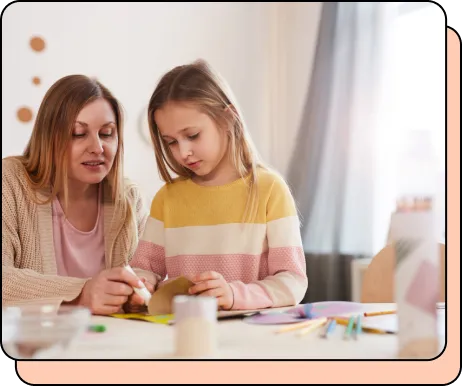

"This course transformed my daughter Sophia's screen habits. She's now more into creative play and outdoor activities. The strategies are practical and really work!"
Emily


"Ethan's performance on the practice and game noticeably improved after he cut down on screen time with this course. His energy levels and focus during practices have really picked up."
William
Join Screen Detox Today & Get $192
Worth of Amazing Bonus Tools & Guides, Free

Bonus #1
Scheduled Activities to Drop the Screens
This bonus will equip you with an expertly crafted activity calendar tailored to your child's age group (0-17 years old), helping you create a balanced and engaging environment that gradually reduces screen time.
By following the step-by-step guidance and age-appropriate activities, you'll be empowered to foster healthy habits and meaningful connections with your child.
Normal price: $47
Free
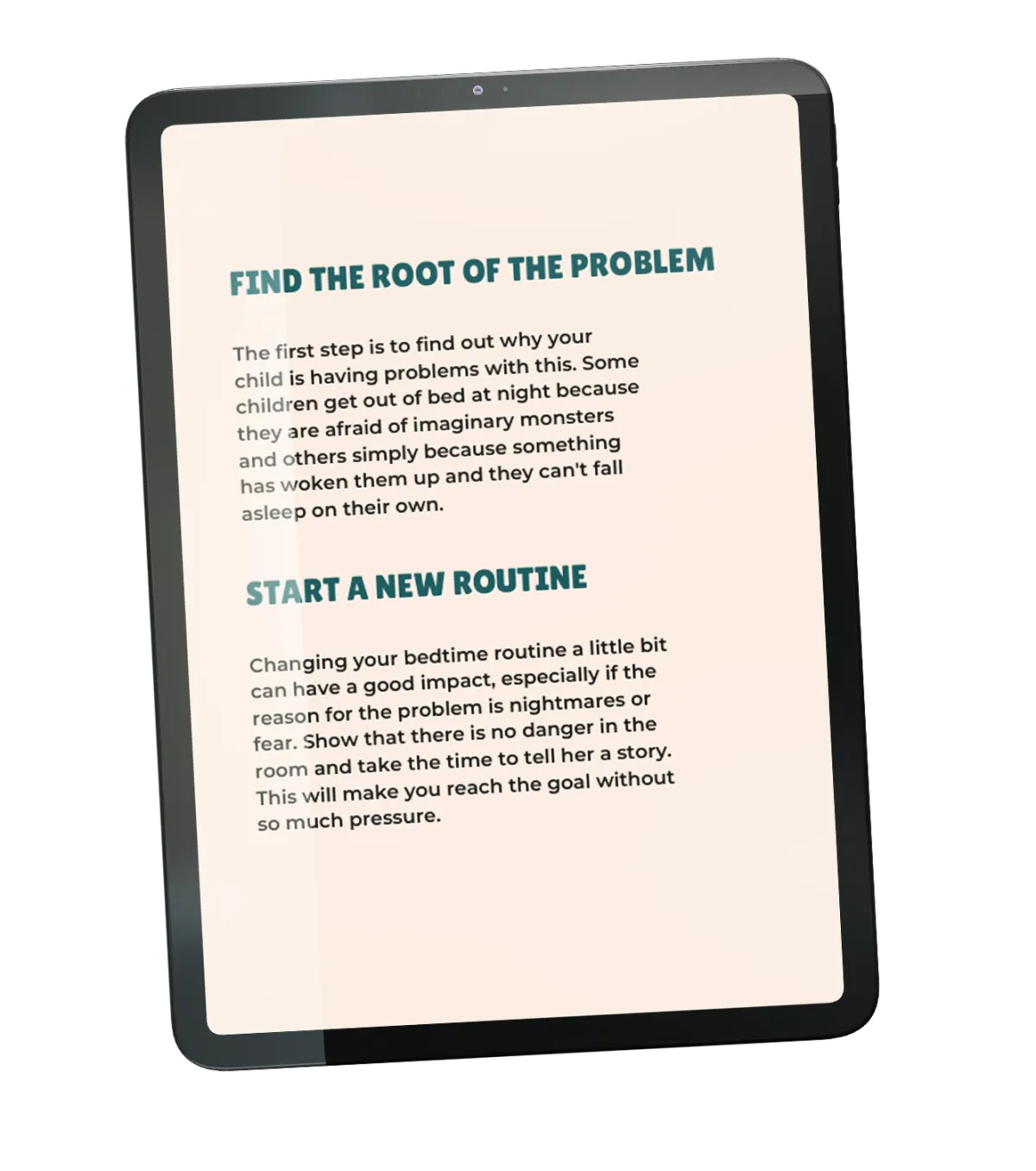
Bonus #2
Sleep Better Guide for Children
Get insightful strategies to help your child develop healthy sleep habits and overcome common sleep challenges.
By understanding the root of the problem and implementing new bedtime routines, you'll be able to create a nurturing environment that promotes restful sleep and supports your child's overall well-being.
Normal price: $37
Free

Bonus #3
Creating Healthy Routines/Habits for Kids
Equip your child with these five essential tips that help them start and maintain daily healthy habits.
By focusing on the importance of routine and implementing these practical strategies, you'll be able to guide your child towards a healthier lifestyle and promote their long-term well-being.
Normal price: $47
Free

Bonus #4
The Genial Pastime
Guide:
Introduce your child to a variety of engaging and intellectually stimulating games that will capture their interest and encourage them to put down their devices. From classic board games to creative storytelling and question-based activities, this guide provides a treasure trove of fun and educational pastimes that will help your child develop critical thinking, imagination, and social skills.
Normal price: $37
Free
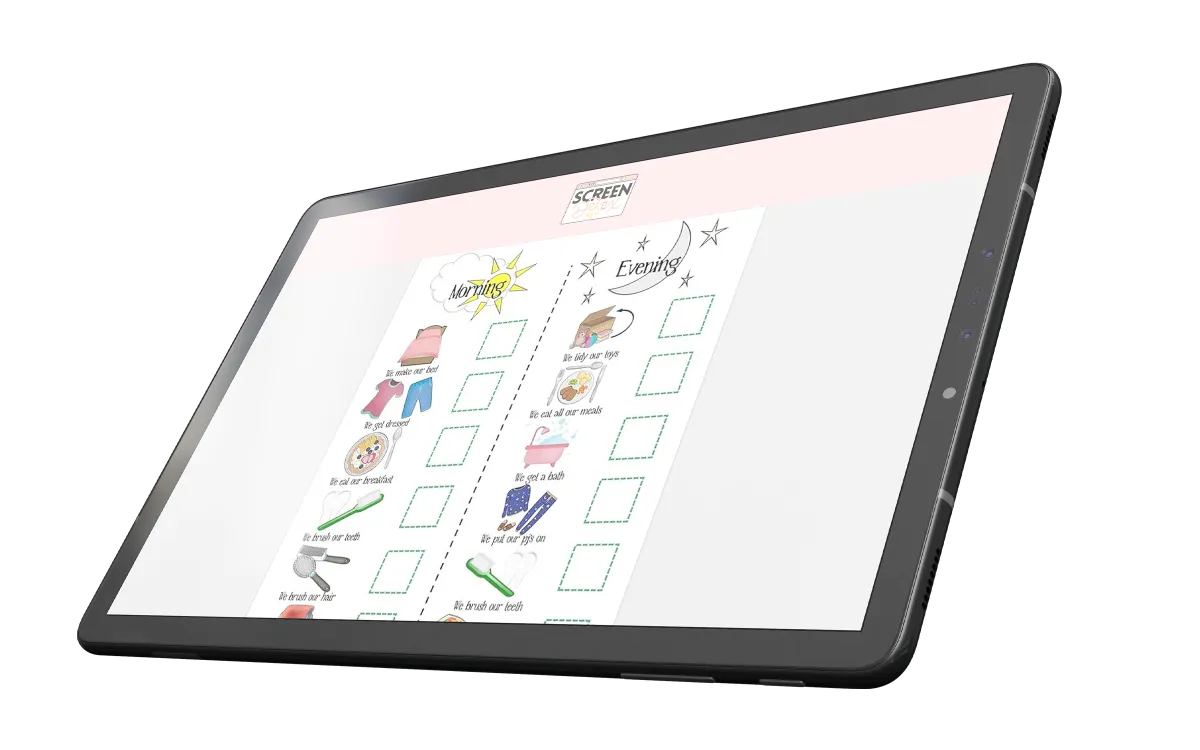
Bonus #5
Children's Planner:
This planner will help you and your child organize their daily activities, goals, and responsibilities in a fun and visually appealing way. By using this planner, your child will learn the importance of time management, develop a sense of accomplishment, and cultivate a more structured and balanced approach to their day-to-day life.
Normal price: $27
Free
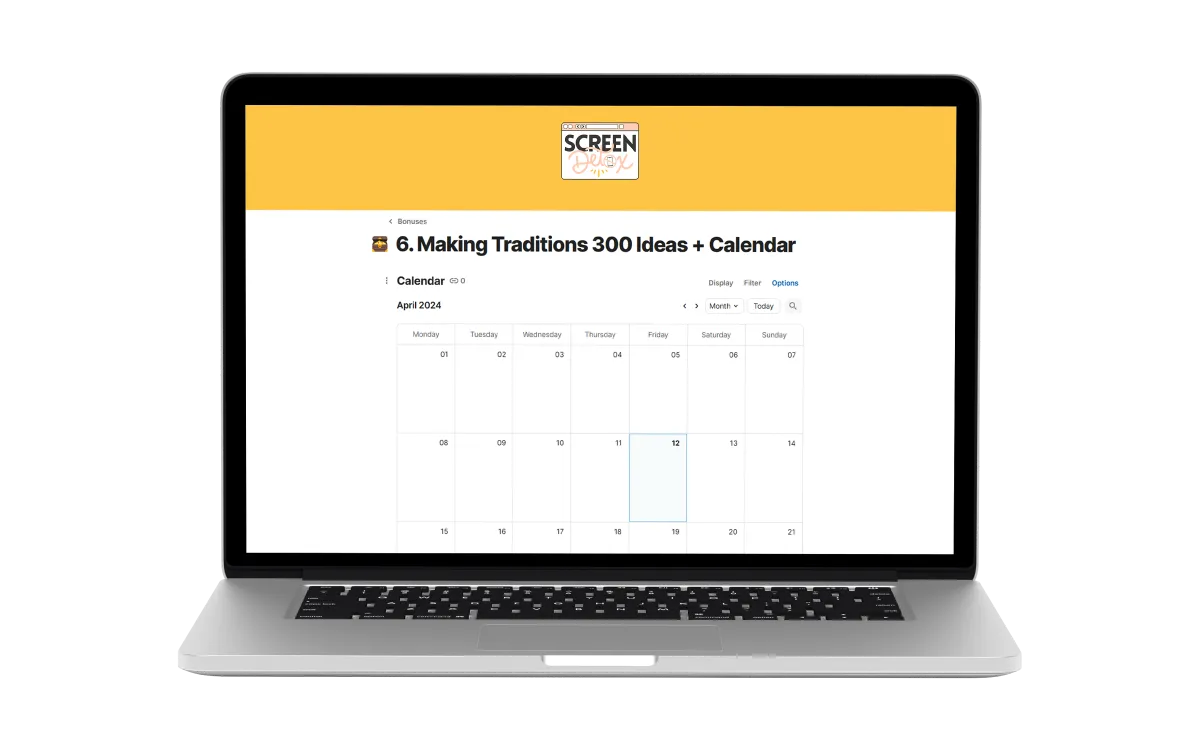
Bonus #6
Making Traditions 300 Ideas + Calendar
With 300 over ideas to choose from and a user-friendly calendar to plan your activities, this bonus will help you strengthen family bonds, create lasting memories, and foster a sense of belonging and stability in your child's life.
Normal price: $47
Free
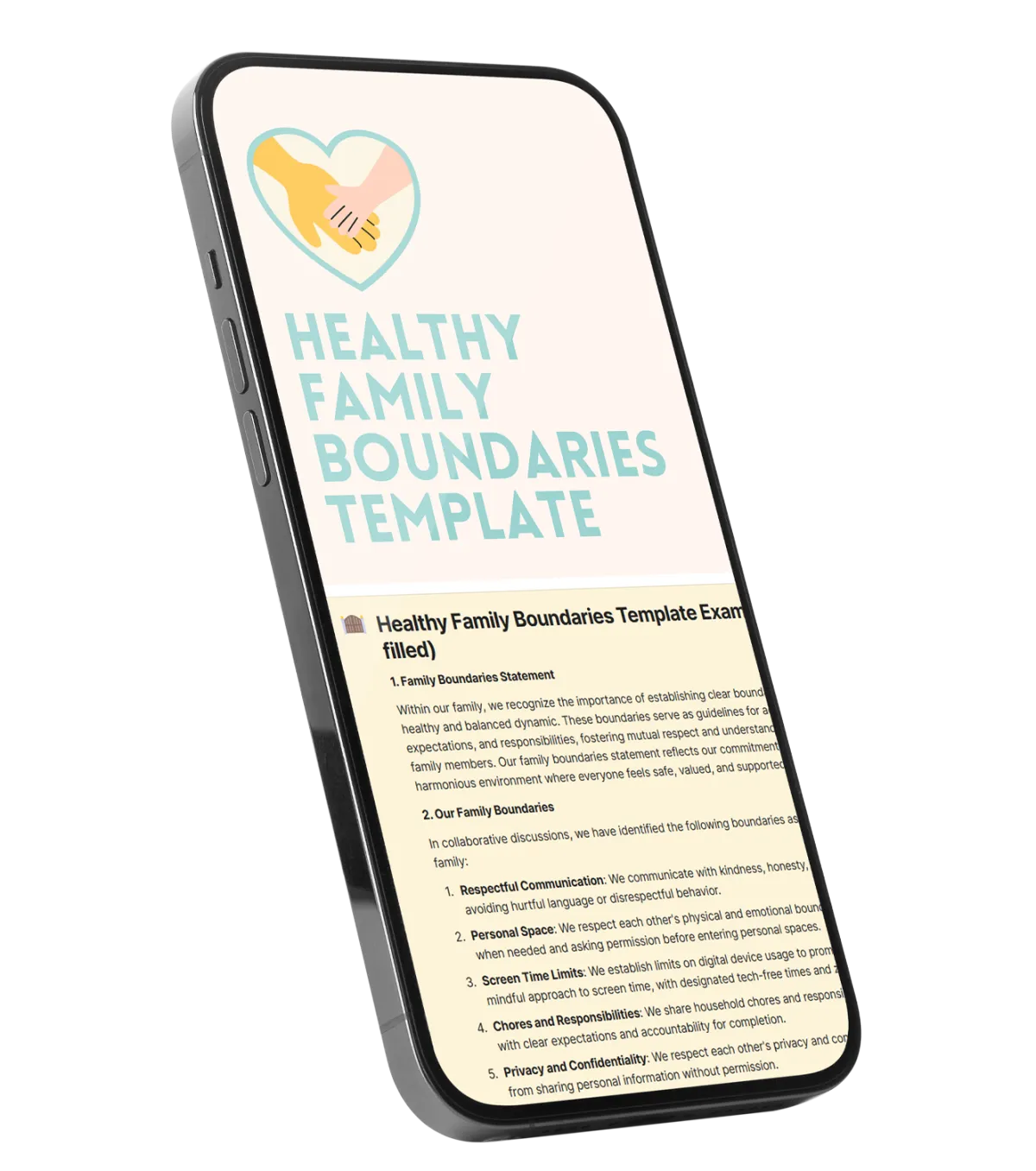
Bonus #7 Family Values Template
This template will guide you through the process of identifying, articulating, and reinforcing the core values that define your family. By clearly communicating and consistently modeling these values, you'll create a strong foundation for your child's moral and emotional development, helping them navigate life's challenges with confidence and integrity.
Normal price: $17
Free

Bonus #8 Healthy Family Boundaries Template
Get a clear framework to establish and maintain appropriate boundaries within your family. By setting clear expectations, respecting individual needs, and promoting open communication, you'll create a safe and nurturing environment that supports your child's healthy development and fosters positive family dynamics.
Normal price: $17
Free
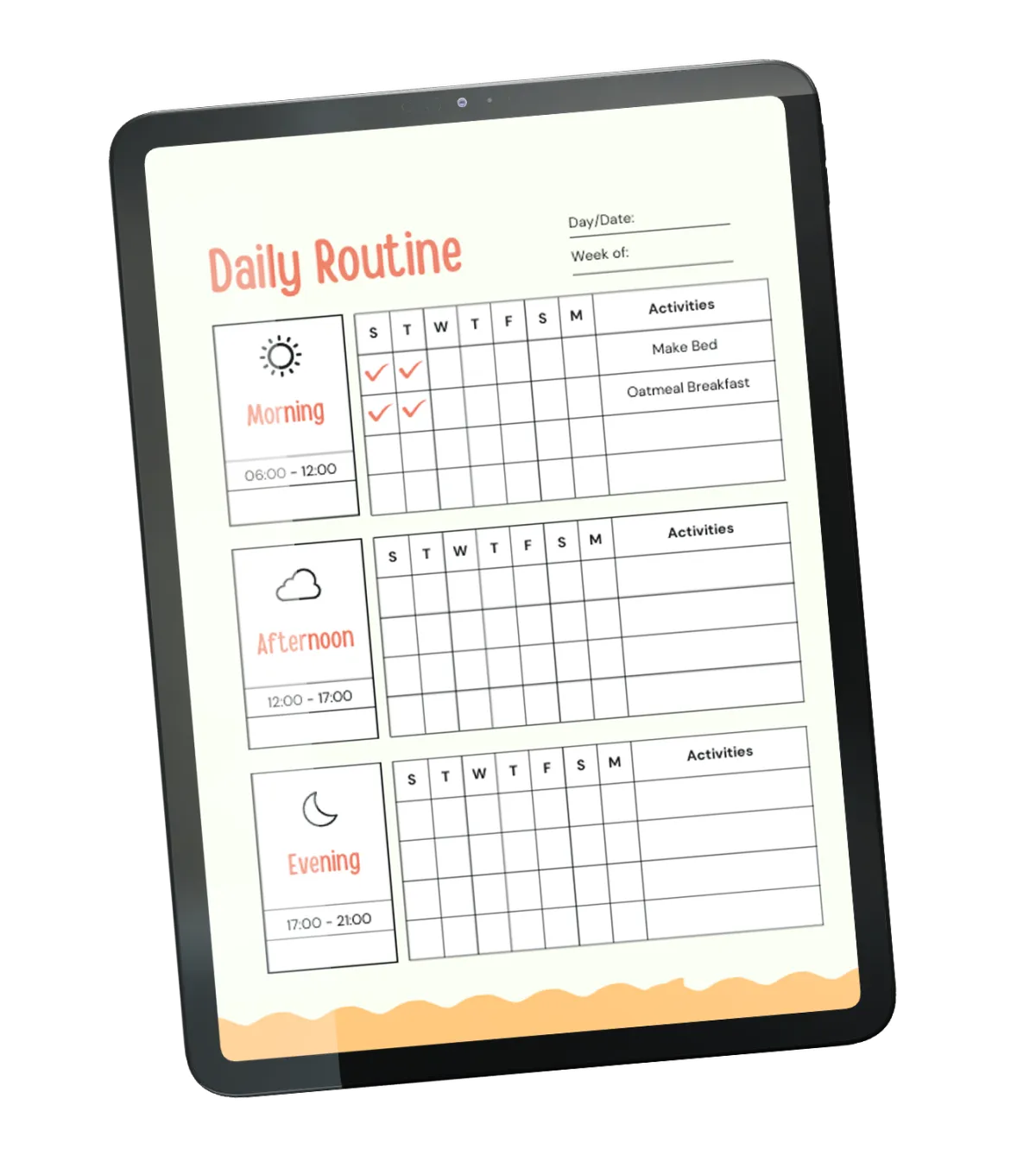
Bonus #9
Daily Routine Planner
Improve your child's day with a balanced routine that includes fun activities and time for rest. By setting up a schedule for schoolwork, playtime, and self-care, you'll help them stay focused and happy every day.
Normal price: $17
Free
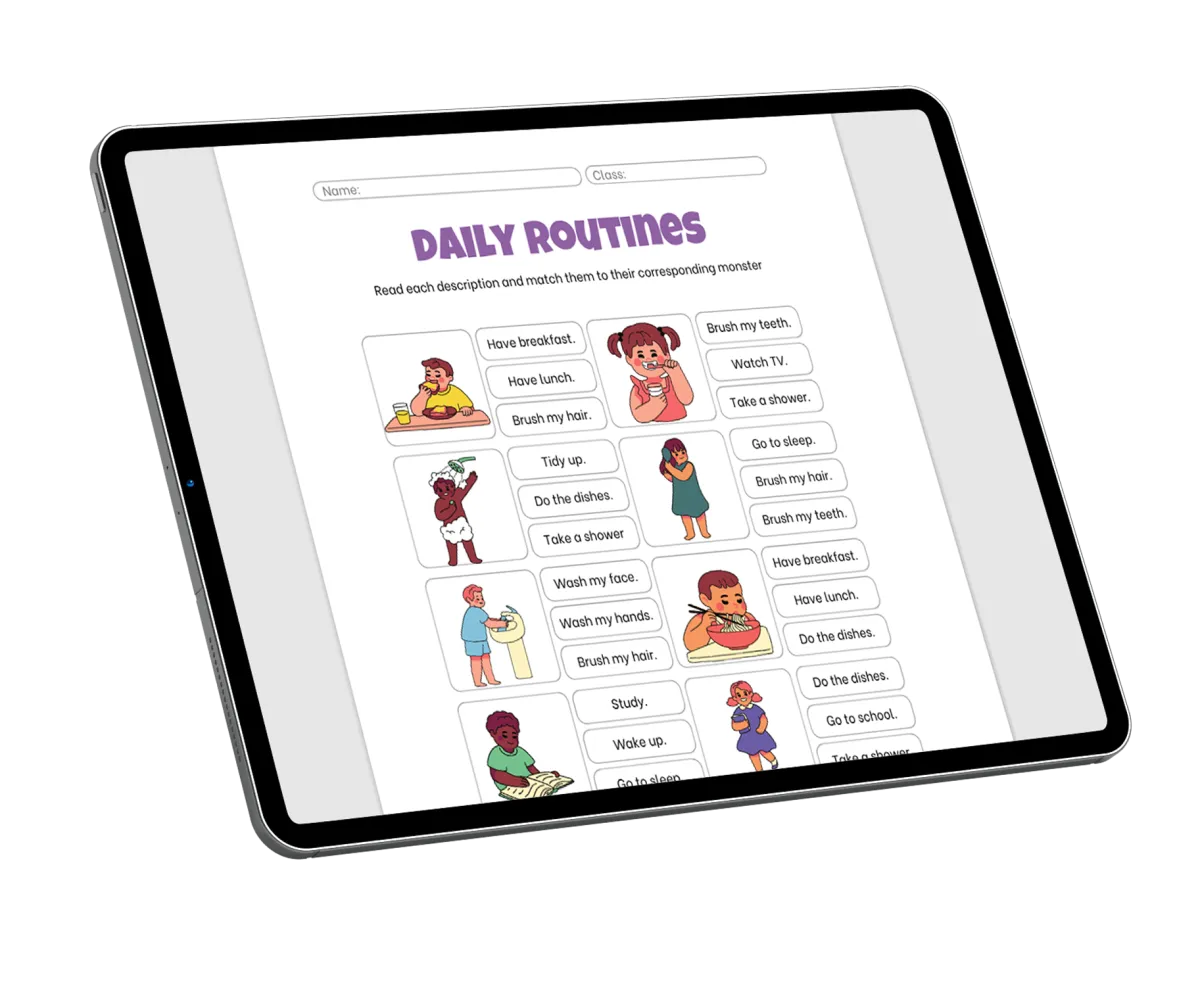
Bonus #10 Daily Routine Worksheet
Empower yourself as a parent with this handy Daily Routine Worksheet designed specifically for your child. Easily map out their day, balancing activities and rest to promote a harmonious and productive routine that supports their growth and well-being.
Normal price: $17
Free
Try the Screen Detox Program Risk-Free for a Full 7 Days
Dive into the program, explore the video lessons, learn all the knowledge, and implement all the proven strategies I prepared for you with your child.
And if within 7 days you don't see any noticeable improvement in your child's screen habits, or at least a mild rekindled passion for real-world experiences in your child.
Or if you for any other reason (or no reason at all) you feel the program didn’t meet your expectations.
Then all you have to do is to simply send me an email,
And I'll promptly refund your every single penny - no questions asked, no hassle, no hard feelings.
That's how confident I am in the life-changing potential of the Screen Detox Program.

Join Screen Detox Program Today and Claim $192 Worth of Tools, Knowledge and Support You Need to Navigate the Challenges of Modern Parenting
Lifetime Access to Screen Detox Program
Bonus #1 Scheduled Activities
Bonus #2 Sleep Better Guide for Children
Bonus #3 Creating Healthy Routines/Habits for Kids
Bonus #4 The Genial Pastime Guide
Bonus #5 Children's Planner
Bonus #6 Making Traditions 300 Ideas + Calendar
Bonus #7 Family Values Template
Bonus #8 Healthy Family Boundaries Template
Bonus #9 Daily Routine Planner
Bonus #10 Daily Routine Worksheet
Total Value: $200
Today's Price
$57
One-time Payment
7-Day Unconditional Money-back Guarantee
You’ll Never Get Another Chance at
Setting up Your Child for Success
It’s NOW or Never — Don’t Let Screens Rob Your Child’s Potential Another Day
The longer you wait to address your child's screen overuse.
The harder it will be to break those nasty habits.
And the harder it will be for your child to develop real world skills that will help them navigate life.
Every day spent on digital devices is a day your child is missing out on the rich, fulfilling experiences that shape their development and future success.
You have the power to change the trajectory of your child's life, but the clock is ticking.
Take action now and give your child the gift of a screen-balanced childhood.
Their future self will thank you.
Frequently Asked Questions
1. What exactly is the Screen Detox Program?
The Screen Detox Program is a comprehensive, science-backed system designed to help families break the cycle of screen addiction and foster a healthier relationship with technology.
2. How is this program different from other screen time management solutions?
Our program uses a unique, neuroscience-based approach that rewires your child's brain to naturally decrease their desire for screen time, rather than relying on strict limits or punishments.
3. How long does the program take to complete?
The core program is designed to be completed in just 14 days, with ongoing support and resources available to ensure lasting results.
4. Is this program suitable for children of all ages?
While the program is designed to be adaptable for various age groups, it is most effective for children between the ages of 5 and 15.
5. Do I need any special equipment or materials to implement the program?
No, the Screen Detox Program is designed to be easily implemented using resources and activities readily available in most households.
6. How much time do I need to dedicate to the program each day?
On average, you can expect to spend around 30-60 minutes per day on program-related activities and exercises.
7. Can I still allow my child some screen time during the program?
Yes, the program is not about eliminating screen time entirely but rather about fostering a healthier, more balanced relationship with technology.
8. Will I have access to support if I have questions or need guidance during the program?
Absolutely. Our program includes access to a private support community and direct email support from our team of experts.
9. What if the program doesn't work for my child?
We're confident in the effectiveness of our program, which is why we offer a 7-day money-back guarantee. If you don't see results within the first week, we'll refund your purchase.
10. Are the strategies in this program backed by research?
Yes, our program is grounded in the latest neuroscience and child development research, ensuring that our strategies are both effective and scientifically sound.
11. How quickly can I expect to see results?
While every child is different, most families begin to notice positive changes in their child's behavior and screen habits within the first week of the program.
12. Will this program help improve my child's academic performance?
By reducing screen addiction and improving focus, the Digital Detox Program can indirectly contribute to better academic outcomes for many children.
13. Is the program designed to be completed independently, or do I need to participate as a parent?
Parental involvement is a key component of the program's success. You'll be provided with guidance and resources to support your child throughout the process.
14. Can I use this program with multiple children in my household?
Yes, the program is designed to be adaptable for use with multiple children, with strategies for tailoring the approach to each child's unique needs.
15. Will my child's personal information be kept confidential?
Absolutely. We take your family's privacy seriously and will never share your personal information with third parties.
16. What if I'm not very tech-savvy? Will I still be able to implement the program effectively?
Yes, the Screen Detox Program is designed to be user-friendly and accessible for parents of all technological skill levels.
17. Are there any additional costs associated with the program, such as subscription fees or upgrades?
No, the program is a one-time purchase with no hidden fees or additional costs. You'll have lifetime access to all program materials and resources.
18. How does the 7-day money-back guarantee work?
If you're not satisfied with the program for any reason within the first 7 days, simply contact our support team, and we'll issue a full refund, no questions asked.
19. Will I receive ongoing updates and support after completing the program?
Yes, as a member of the Digital Detox Program community, you'll have access to ongoing updates, resources, and support to ensure your family's continued success.
20. How do I get started with the Screen Detox Program?
Simply click the "Join Now" button on this page, complete the secure checkout process, and you'll receive instant access to the program materials and resources.
